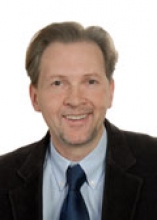EECS Seminar: Low Complexity Antenna Arrays and Techniques for Wireless Communication and Sensing

Abstract:
In this talk we will provide an overview of recently developed techniques in the area of compact antenna arrays that have fewer radio frequency (RF) chains than elements. These arrays comprise both conventionally fed active antennas and passive ones that radiate due to the mutual coupling from neighboring elements. By using load-control circuits, the mutual coupling between adjacent elements can be exploited in order to produce the desired radiation patterns. Compared to conventional antenna arrays, which require one RF chain per element, these systems have a clear double benefit: they require fewer RF chains, making them cheaper and less power-consuming; and they occupy a smaller volume, due to the small inter-element distances needed for strong mutual coupling. However, it is not always straightforward to design the mixed analog-digital circuit logic that can produce arbitrary (e.g. channel-dependent) beams or other types of spatial multiplexing and precoding. A number of recent advances in this direction will be provided, including techniques for closed-loop MIMO transmission, as well as multi-user precoding. The corresponding applications range from MIMO handsets to small cell access points and remote radio heads to massive arrays. The use of such low-complexity arrays in cognitive radio networks and other spectrum-sharing systems is another important application that will be emphasized. The talk will conclude with the presentation of a number of recent over-the-air experiments and demos performed at AIT's Broadband Wireless & Sensor Networks (B-WiSE) Research Lab, which showcase the benefits of these systems in various setups and which underline their potential for next-generation wireless devices and networks.
Bio:
Constantinos B. Papadias is the dean of Athens Information Technology (AIT), in Athens, Greece, where he is also professor and head of its Broadband Wireless and Sensor Networks (B-WiSE) Research Group. He is also an adjunct professor at Aalborg University in Denmark. Papadias received the diploma of electrical engineering from the National Technical University of Athens (NTUA) in 1991 and the doctorate degree in signal processing (highest honors) from the Ecole Nationale Supérieure des Télécommunications (ENST), Paris, France, in 1995. He was a researcher at Institut Eurécom (1992-1995), Stanford University (1995-1997) and Bell Labs (as a member of the technical staff from 1997-2001 and as technical manager from 2001-2006). He was also an adjunct professor at Columbia University (2004-2005) and Carnegie Mellon University (2006-2011). His research interests span several areas of advanced communication systems, with emphasis on wireless, cognitive, green and next-generation networks. He has published over 170 papers, one research monograph, two edited books, six book chapters, and has received over 6,000 citations for his work. He has also made standards contributions and holds 12 patents. Papadias was a member of the steering board of the Wireless World Research Forum (WWRF) from 2002-2006, a member and industrial liaison of the IEEE's Signal Processing for Communications Technical Committee from 2003-2008 and a national representative of Greece to the European Research Council's IDEAS program from 2007-2008. He has served as member of the IEEE Communications Society's Fellow Evaluation and Awards Commitees, as well as an associate editor for the IEEE Transactions on Signal Processing, the IEEE Transactions on Wireless Communications and the Journal of Communications and Networks. He has participated in several European Commission research grants, including the Horizon2020 project SANSA in the area of satellite-assisted wireless backhauling and another two FP7 research projects where he acts as technical coordinator: HARP, in the area of remote radio heads, and ADEL, in the area of licensed shared access. His distinctions include the Bell Labs President's Award (2002); a Bell Labs Teamwork Award (2003); the IEEE Signal Processing Society's Young Author Best Paper Award (2003); ESI's "most cited paper of the decade" citation in the area of wireless networks (2006); his recognition as a "Highly Cited Greek Scientist" (2011); and the co-authorship of two papers that earned Best Student Paper Awards at the IEEE International Conference on Bioinformatics and BioEngineering (2013 & 2014). He was a distinguished lecturer of the IEEE Communications Society for 2012-2013. Papadias is a member of the Technical Chamber of Greece and a Fellow of IEEE.
Share
Upcoming Events
-
MSE 298 Seminar: Mechano-Electrochemical Phenomena at Ceramic Electrolyte Interfaces
-
MSE 298 Seminar: Innovation In Materials Science - An Industrial R&D Perspective
-
MSE 298 Seminar: Understanding the Impact of Grain Boundary Inclination on Grain Growth Using Modeling and Simulation and Experiments
-
EECS Seminar: Mixed Conductors for Bioelectronics
-
MSE 298 Seminar: Ionic Correlations in Polymer Nanostructures - From Block Copolymers to End-Charged Blends
